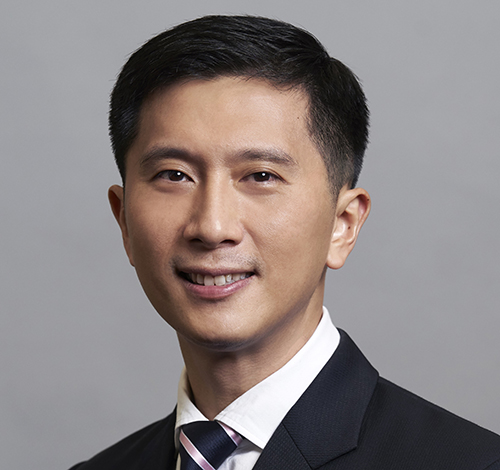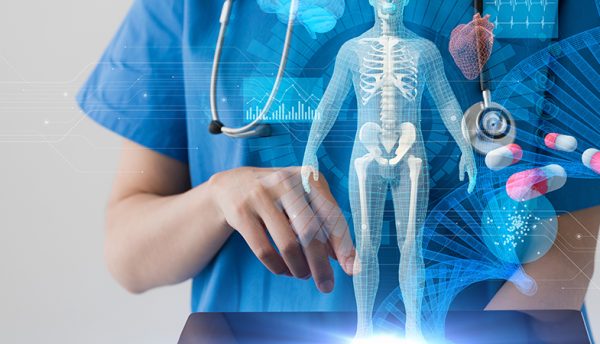National University Health System (NUHS), a leading academic health system in Singapore that attends to more than one million patients each year, has deployed TIBCO AI solutions to improve healthcare practices and outcomes, enabling clinical practitioners to make faster, more accurate diagnoses and precise treatments.
In Singapore, the National University Health System (NUHS) is no stranger to innovation. Since its formation, it pioneered a number of medical breakthroughs, like experimental therapy for children battling acute lymphoblastic leukemia, the first gynecologic robot assisted cancer and endoscopic surgery in South East Asia, and discovered the gene RUNX3, which prevents the uncontrolled growth of cells leading to colorectal cancers.
Increasing demand requires innovation
As hospitals in Singapore cannot keep expanding capacity to meet increasing demands, Singapore’s Ministry of Health is focusing on the prevention of chronic diseases. When patients fall ill, they are transferred from the hospitals to the community, where people can receive appropriate care at home, avoiding frequent hospital admissions.
NUHS, in its efforts to execute the Ministry of Health’s strategies, decided to invest in Artificial Intelligence (AI) and predictive capabilities to enable earlier interventions.

Dr. Ngiam Kee Yuan, Group Chief Technology Officer at NUHS, said: “In Singapore, we face the same kind of challenges as everyone else in healthcare. We have an ageing population, an increase in chronic diseases, slower workforce growth, as well as an increase in the number of patients seeking medical care at our facilities.
“To address these concerns, the government has put in place a strategy called The Three Beyonds to meet the needs of a slower workforce growth as well as to care for more patients: we want to move beyond the hospital to community, to move beyond quality to value, and to move beyond healthcare to health.”
With a new focus on community health, NUHS wanted access to real-time data to help execute predictive capabilities: learning how and when people were getting sick to better prevent chronic diseases. However, its former system did not have consumable backend data or the ability to inject AI/ML models into streaming data on the fly. Additionally, the hospital struggled to automate its clinician workflows, which was inhibiting employee productivity.
To achieve operational excellence and continue to offer the best care possible, NUHS needed to leverage its data and generate predictive analytics – moving to an emphasis on value-based, community care.
Dr. Ngiam states: “Value-driven outcomes are a core piece of our strategy to move beyond quality to value. We want to move upstream into preventive community health by incentivizing healthy patient behaviors through the use of AI and automation at scale.”
Analytics accelerates hospital transformation
NUHS started its transformation journey by deploying TIBCO solutions to address clinical needs -extracting the correct data to build the right models for clinical problems. The hospital system chose TIBCO technology for its end-to-end capabilities from data sources to deployment – and the platform’s incorporation of validated AI models into clinical workflows to improve workforce productivity and clinical outcomes.
These features are deployed on NUHS’s new platform, called ENDEAVOUR AI, which is a core system that houses multiple AI tools and technologies, including TIBCO Connect technology for messaging, microservices and other capabilities.
Dr. Ngiam said: “For example, high volume clinical data is converted from our source electronic health record (EHR) system to Kafka messages and consumed by various AI microservices in TIBCO Streaming software.
“We use TIBCO Streaming and its TIBCO ModelOps capabilities to operationalize these Python scripts containing AI models that have been trained and validated on historic data. The output of these AI models can then be sent to our AI chatbot services, which can be subscribed to by multiple downstream service applications to deliver messages to providers and patients.”
The goals of these AI tools are to augment the work of doctors by applying better diagnostic and disease models to improve patient safety and reduce complications. The team has also implemented discovery applications to predict the efficacy of drug therapies and optimize patient wait times.
Dr. Ngiam said: “We can deploy AI tools at population scale to screen patients for particular conditions such as breast cancer. This model uses a natural language processing tool to predict the risk of breast cancer of any patient presenting to our health system. We are also able to automate the process of following up at-risk patients for mammograms, as well as referrals for treatment if suspicious features are found.”
As ENDEAVOUR AI aggregates live data throughout the health system, this data can be read by the TIBCO Spotfire system to display outcomes in a command center format so smarter decisions can be made in real time.
Dr. Ngiam said: “We leverage AI to improve healthcare practices and outcomes, enabling clinical practitioners to make faster, more accurate diagnoses and precise treatments. Healthcare institutions aggregate vast quantities of data, but most of this data is analyzed retrospectively. TIBCO technology enables the NUHS ENDEAVOUR AI platform to stream data in real time, feeding live data into AI models that produce actionable insights on the fly.”
Better operations, better diagnostics
With this new platform, NUHS can now deploy novel AI and automation tools that were not possible before. New services, such as pharmacogenomics, can now be introduced and would support the optimization of patients’ medication according to their genetic profile.
NUHS plans to operationalize as many as 150 distinct AI and automation tools as microservices on ENDEAVOUR AI. These AI tools incorporate multi-domain patient information, such as demographics, clinical text, images, lab data and medications to make predictions.
These tools range from improving diagnosis at admission, to predicting length of stay in the hospital. This translates into significant productivity gains, cost savings and optimized bed resources across the hospital cluster.
One of the hospital’s new tools reads emergency physicians’ notes and makes predictions of diagnoses. For example, using the platform’s predictions, physicians can understand whether or not a patient is likely to have appendicitis. These are not the only tools at the hospital’s disposal.
Dr. Ngiam said: “Our 30-day readmission prediction is based on a neural network that helps us determine the risk or readmission within 30 days of discharge from an acute hospital.”
Looking to the future, NUHS is interested in adopting TIBCO ModelOps capabilities in the next transformation phase as well as expanding its predictive analytics capabilities to have real-time sensing of resource availability.
“Our state-of-the-art ENDEAVOUR AI platform drives smarter, better and more effective healthcare in Singapore,” said Dr. Ngiam. “Using TIBCO, we hot-deploy, manage and govern various models.
“We are also very excited to be an early trialist of TIBCO ModelOps software. We expect it will accelerate the deployment of safe and effective AI-informed processes in a more scalable, containerized way.”
With these TIBCO capabilities, NUHS intends to develop and deploy cutting-edge healthcare AI and automation, including enhanced clinical workflow automation, operational optimization, value-driven outcomes, precision medicine, AI driven image workflows and integration with EMR systems.
Dr. Ngiam concludes: “We look forward to broader collaboration with TIBCO, and to use AI tools to better meet the healthcare challenges of the future.”
Click below to share this article

